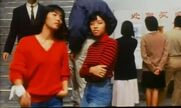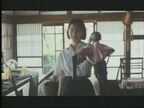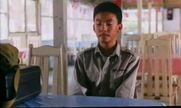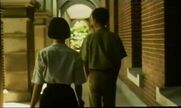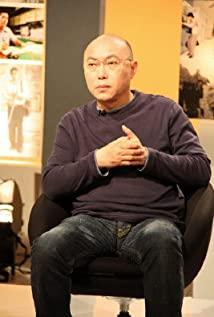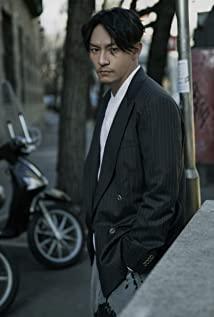The contradiction between the "Little Park" gang and the "712" military village gang constitutes the main frame of the film. As the main narrator of the story, Xiao Si wandered on the edge of various battles at the beginning, basically on the sidelines. Under the influence of various forces, he was passively involved in the core of the conflict step by step until he became the final murderer. By. This story is actually just a few words: Xiao Si, a student in the second grade of the night school in Jianzhong, fell in love with Xiao Ming, the girlfriend of Honey, the boss of the "Little Park", but Honey did not stop him, but chatted with him alone, which was very speculative. Soon Honey was plotted against Shandong, the boss of the "712" military dependents' village, and died under the wheel. Xiao Si was expelled for contradicting the school doctor, and his father suffered from isolation and censorship due to so-called "political issues". And Xiao Ming, the only one who could bring hope to Xiao Si, turned to be on good terms with his buddy, Xiao Ma, and the angry Xiao Si killed Xiao Ming with a knife on the spur of the moment. But Yang Dechang is an extremely ambitious artist. He is not satisfied with linearly describing the accidental incident of a juvenile delinquency. Instead, he uses this as an excuse to stab into the heart of society with blood, depicting the transition period of Taiwan in the 1960s. The social outlook thus constitutes another main frame of the film, namely the previous generation who retreated to Taiwan from the mainland and the next generation of native-born Taiwanese represented by the Xiaosi family. Yang Dechang is not the only Taiwanese filmmaker capable of expressing this motif, but probably only Yang Dechang can produce a tragic taste that is both hot and bloody and sharp and cold. Under the lens of Hou Hsiao-hsien, it must be more than deep and not bloody enough, because Hou Hsiao-hsien's film is Localized and adult-like, just like Yang Dechang's "sharp modern sense" and youthful characteristics, even middle-aged intellectuals like Xiao Si's father showed almost childish stubbornness and frankness.
I always feel that Yang Dechang is not using film to make movies, but is using a magnifying glass to observe calmly, and all the details can be displayed to the greatest extent, but he still hides in the dark and makes no sound. He seldom uses sensational close-ups and background music, and he has almost no exposed rendering of young people's love and youth, but quietly fills in the fragmented shots. The eldest sister's youth is bright and bright. Her beautiful long dress, fluent English, the posture of wearing a watch, and the tone of the parents who taught her younger siblings are like her mother's time in Shanghai. The youth of the second child is chaotic and repressed, and he is always in a position of being ignored and punished at home. Hanging around in the billiards room can also be interpreted as the desire to be accepted and acknowledged in his heart. The second sister dedicated her youthful beliefs to God. Her voice was always low and calm, but when she finally learned that Xiaosi had killed her, her hysterical screams were full of anger and despair towards God. The buttons on the little girl's clothes are always falling off, and the skirt is always too short, that is her rapidly growing youth.
Ten years ago, Zhang Zhen has not grown into the handsome guy in "Happy Spring" and "Crouching Tiger, Hidden Dragon", but that pure face seems to me to be fuller and more expressive. He uses few words to show Xiao Si's silent, stubborn, and constantly encountering obstacles in reality to despair in a subtle and profound way. The image of Xiao Si is not cowardly because of his taciturnity, on the contrary, he is strong and powerful. He has always refused to give up his belief in himself. He would rather be recorded as a major demerit or expelled by the school than admit his fault, and would rather destroy himself than allow Xiao Ming to do this. "No promise". Everyone's attention is generally focused on the central plot of his murder of Xiaoming, but there are two other characters that should not be ignored - father and Honey. Like Xiao Si, his father's character development in the big environment is also very full. In almost the same school discipline scene, the audience can clearly see the strong contrast deliberately arranged by the director. The submissive promise, this intellectual who retains the vitality of young people is finally completely defeated by the cruel reality. The father who once encouraged his children to "believe that their future can be determined by their own efforts" fell down in the spiritual world of the fourth, and he only had the spiritual support of Honey. I often wonder, is it Xiao Ming or Honey that Xiao Si really loves? It sounds a bit absurd, he fell in love with Xiao Ming long before he met Honey, but Honey's blip in his life undoubtedly gave him a huge impact. The tone of the whole film is very realistic, except that Honey, who doesn't take much part in the scene, has added an idealistic color. The boss of "Little Park" in the blue navy uniform is handsome and lonely. He almost foolishly went to negotiate alone, but lost his young life, just to be like the "old man who blocked Napoleon alone" in "War and Peace" Fight what cannot be fought. It was this seemingly unworthy death that inspired Xiao Si's strong vitality. For the first time, he bravely confessed to his beloved girl, "I will never leave you!" At the climax of the film, he even issued a statement. "Now, I'm Honey" voice. When he drew a knife and stabbed Xiao Ming, he felt that he and Honey were competing with the ugly real world for Xiao Ming.
The slain Xiao Ming is a very complicated character, and Yang Dechang has added to her far more than the load of teenage girls. Being dependent on her mother, she has a far better understanding of the cruel reality than Xiao Si. She is poor, turbulent, and dependent on others. She is always in a state of insecurity and insecurity. This makes Xiao Ming embody a contradictory beauty. Pure and shy, and the coldness of a mature woman. You can scold her for being arrogant and being nice to every boy who chases after her, but after watching it for the second time, I feel more sorry for her than for Xiao Si. If it is said that in Xiao Si’s youth from bright to dark, Xiao Ming is his last bright color; then, in Xiao Ming’s already dim youth, Xiao Si is her only bright color, and this only bright light is still Killed by herself. Compared with the lively, warm and relatively stable atmosphere of Xiao Sijia, Xiao Ming and his mother are always worried about where they will end up tomorrow. Her mother once said sadly, "You must grow up quickly." This heavy expectation and harsh living environment deprived her of the right to truly enjoy youth. She was quickly assimilated by the world at the simplest age. So from a certain point of view, she is even more mature and aging than the fourth father. On the other hand, Xiao Ming's brows are still shining with pure light. She actually needs to be understood and respected so urgently, so Xiao Si is the person who is closest to her and warms her the most. But in the end, she still betrayed Xiao Si, that is, betrayed herself, and compromised with the more powerful real world.
Xiao Si finally killed Xiao Ming with a dagger and was sentenced to fifteen years in prison. Kitten took the tape he recorded to see him, but was thrown into the trash by the guard. In the air, the kitten imitated the singing of Elvis, "Are you lonesome tonight? Do you miss me tonight?" How can I not cry over the death of youth? In Yang Dechang's bloody youth, who can cry without losing his voice?
View more about A Brighter Summer Day reviews



